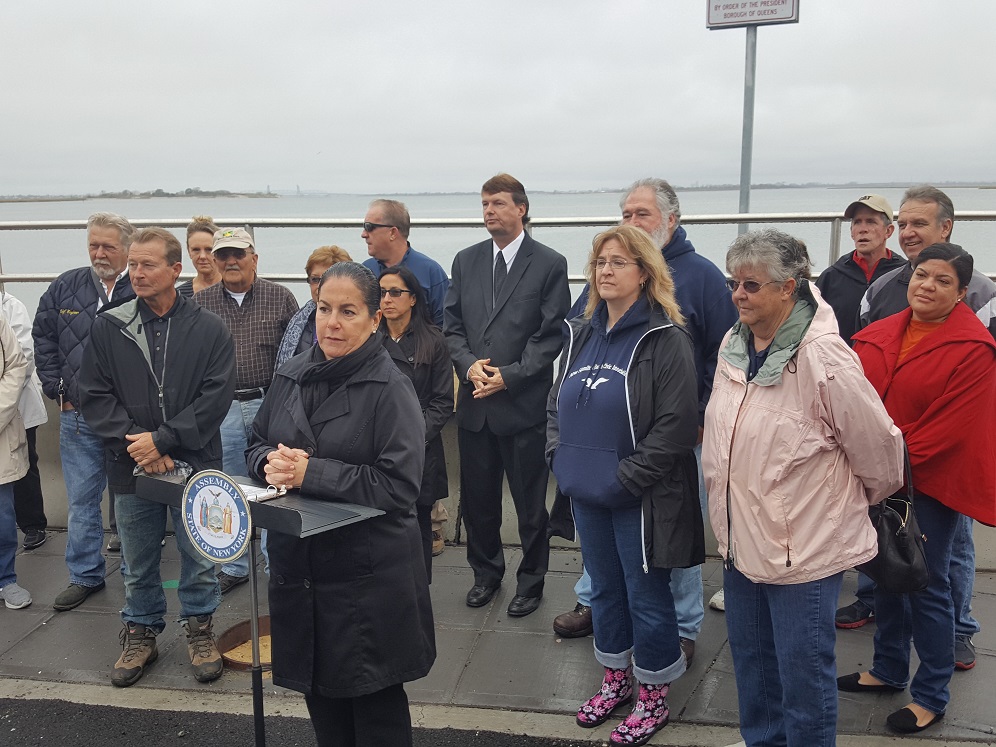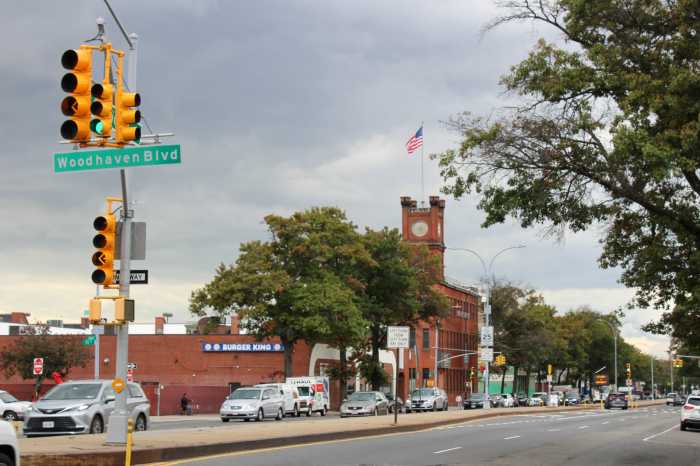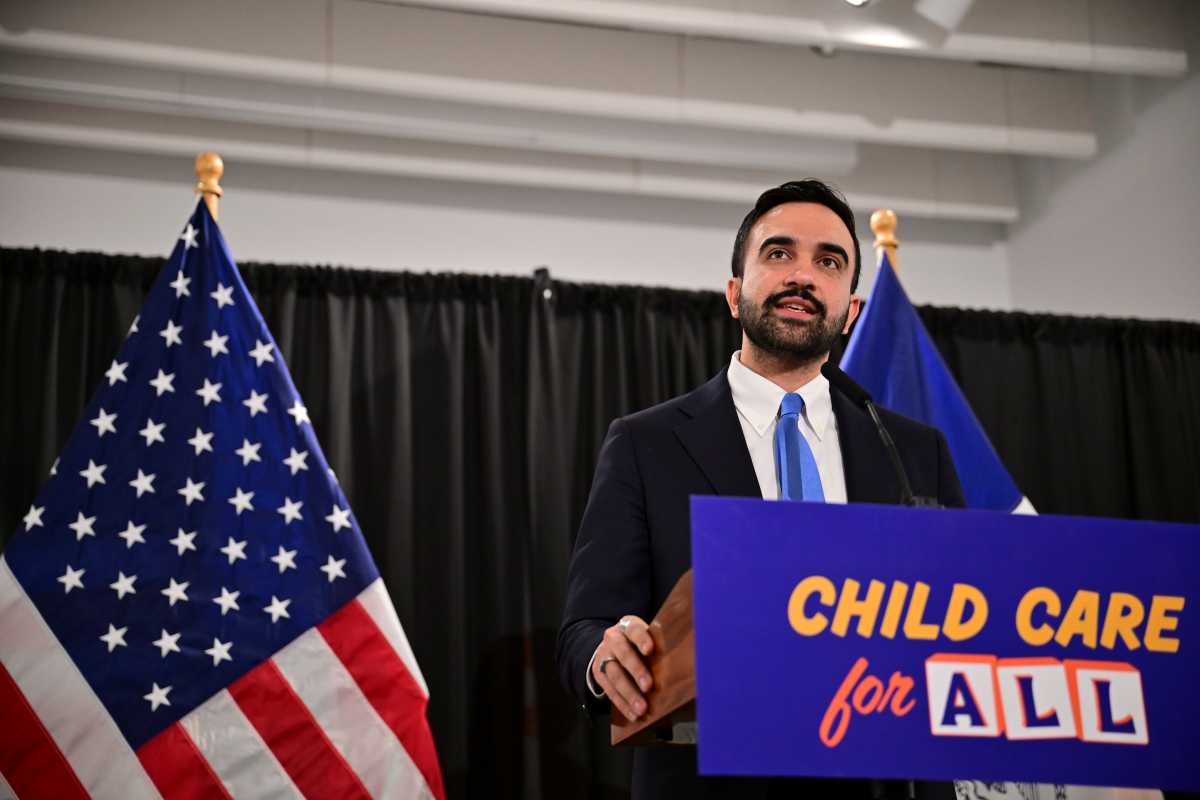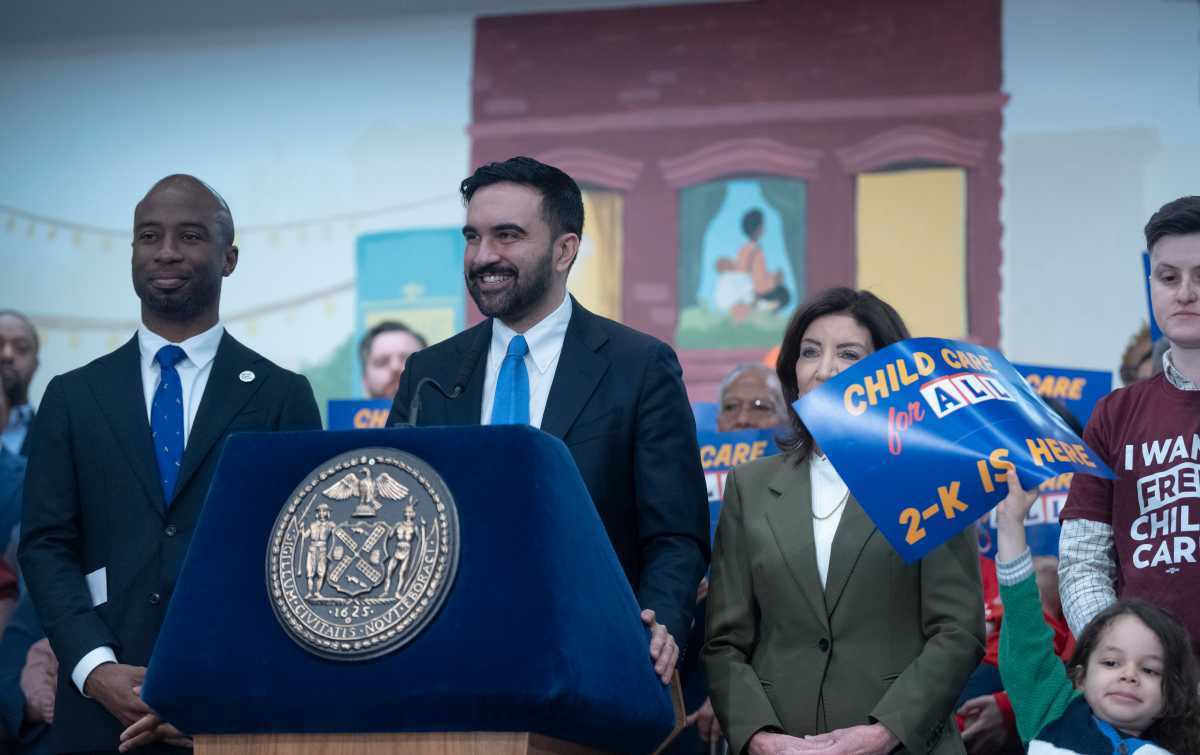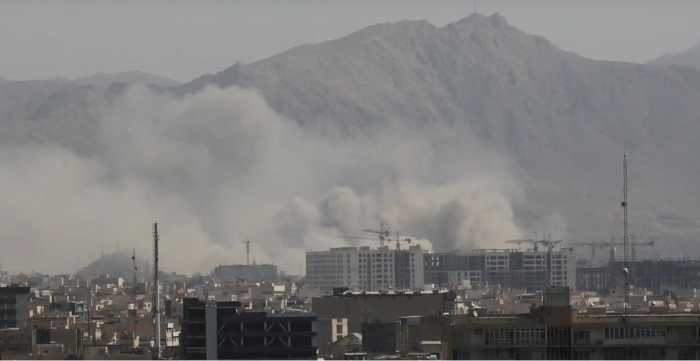In the wake of Hurricanes Harvey, Irma and Maria, the National Flood Insurance Program (NFIP) is due be reauthorized in November.
On Oct. 29, five years after Hurricane Sandy, Assemblywoman Stacey Pheffer Amato and the Working Group she formed in the aftermath of Sandy came out to outline what they’d like to see happen when the NFIP is reauthorized.
“Insurance shapes the whole landscape of resiliency and recovery,” said Pheffer Amato. “That’s why I convened this working group. Everyone on this team rolled up their sleeves from Day One in 2012. Now they have five years of experience under their belt – rendering aid, cleaning up, comforting their neighbors, rebuilding, lobbying for help, swapping best practices, wrestling with bureaucracy, fighting with insurance companies on behalf of their families and communities. Insurance impacts us long-term, steering where people live and can afford to continue to live; it touches on every aspect of recovery and rebuilding.”
Pheffer Amato and the Working Group, which is composed of stakeholders from impacted communities in south Queens, note that their input valuable to the national debate. Following the aftermath of Hurricane Sandy, they are informed by the successes and shortcomings of the existing NFIP as it applied to New York City, plus five years of follow-up action to rebuild in the storm’s aftermath.
In a letter to Congresswoman Maxine Waters, ranking member of the House Committee on Financial Services, Pheffer Amato has outlined the most important priorities for NFIP reauthorization, from the perspective of survivors of Hurricane Sandy:
- Grandfathering rules – the carry-over of prior rates – should be maintained under the reauthorization.
- The claims process must be reformed.
- Increased accountability of NFIP contractors, including a provision that would require engineering reports for any claim for losses covered by the NFIP to be provided to the policy holder, as well as a provision requiring annual reviews of engineering firms participating in the NFIP.
- Additional funding to finish the FEMA maps, along with improved map accuracy.
- Maps should show present risk as well as future risk.
- Inconsistent rate quotes must be corrected via enforcement and other mechanisms.
- Flood Zone communities nationally need funding for mitigation efforts.
- There should be expanded mitigation options and credits.
- There should be caps on the mandatory required premiums and vouchers for low-income homeowners, to keep the cost of premiums and fees from pricing people out of their communities.
- Elevation certificate reimbursements should be provided for homeowners who need them.
- Renewal should be on a five-year horizon, not 10.
- There must be a full and thorough FEMA report, which currently has no mention of Sandy claims.
“This working group convened by Assembly member Pheffer Amato has been a great success because it has connected government officials with Queens residents who are experiencing the negative effects of ever-increasing flood insurance rates,” said Queens Borough President Melinda Katz. “Together we have come up with strong legislative recommendations for improving and strengthening the National Flood Insurance Program. Assembly member Pheffer Amato and all those who have been a part of the working group deserve to be commended for developing commonsense proposals that would better protect Queens residents.”

